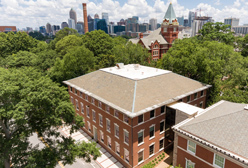New Sponsored Research
Susan Cozzens, professor in the School of Public Policy, was awarded $179,487 by the National Science Foundation for the project "Collaborative Research: Women in Science and Technology Policy."
Aaron Levine, assistant professor in the School of Public Policy, has received a National Science Foundation Faculty Early Career Development Program (CAREER) award. The five-year, $650,000 grant will support his project "Ethically Contentious Science and The Graduate School Experience."
Brian Magerko, assistant professor in the School of Literature, Communication, and Culture, has been awarded $16,000 in supplemental funding from the National Science Foundation for research experience for undergraduate students in his project "Collaborative Research: Modeling Creative and Emotive Improvisation in Theatre Performance."
Patrick McCarthy, interim chair in the School of Modern Languages, has been awarded $116,121 in new supplemental funds from the Institute of International Education for the "Project GO: ROTC Language and Culture Project."
Douglas Noonan, associate professor in the School of Public Policy, has been awarded $15,000 by the National Foundation on Arts and Humanities / National Endowment for the Arts for his project "Measuring the Value of American Arts Over Time: Travel Cost, Time Use, and Neighborhood Dynamics."
Other Research Funding
Alexandra Mazalek, associate professor in the School of Literature, Communication, and Culture, was awarded a GT-FIRE grant for $38,000 for the project "Interdisciplinary Undergraduate Design Minor."
Julia Melkers, associate professor in the School of Public Policy, with Ed Coyle (ECE) and Randal Abler (COE), was awarded a Global GT-FIRE grant for $30,000 for "Creating & Studying a Global Web of Vertically-Integrated Projects (VIP) Programs."
Faculty Books
Diagnosing Empire: Women, Medical Knowledge, and Colonial Mobility (Ashgate) by Narin Hassan, assistant professor, School of Literature, Communication, and Culture, examines the emerging figure of the woman doctor and her relationship to empire in Victorian culture.
Disney Stories: Getting to Digital (Springer) by Krystina Madej (with Newton Lee) explores how Disney, the man and the company, used technological innovation to create characters and stories that engage audiences in many different media, in particular in Video Games and on the Internet. The book is a collaboration and written by her and her coauthor, Newton Lee. Madej is a Visiting Assistant Professor in the School of Literature, Communication, and Culture.
Inventing the Medium: Principles of Interation Design as Cultural Practice (MIT Press) by Janet Murray, professor, School of Literature, Communication, and Culture. A foundational text offering a unified design vocabulary and a common methodology for maximizing the expressive power of digital artifacts.
What Does Georgia Tech Think?
Selected Press for Ivan Allen College of Liberal Arts
|
French Government Knights Birchfield
"The French government has honored Vicki Birchfield, associate professor in The Sam Nunn School of International Affairs at Georgia Tech with the National Order of Merit medal in the rank of Knight. Pascal Le Deunff, France’s consul general for the Southeast, presented Dr. Birchfield with the medal during a private ceremony at his residence in Atlanta on May 9. Mr. Le Deunff praised Birchfield for 'raising the international profile of Atlanta,' and for strengthening mutual understanding between the American and the European views 'during difficult times -- transatlantic trade disputes, political and diplomatic disagreements.'" Source: Global Atlanta - May 17, 2012 Also see Announcement in IAC December 2011 Newsletter
There are no events scheduled at this time.
|
New Chairs Named for Economics, Modern Languages, and Literature, Communication, and Culture

Following a national search, the Georgia Tech Ivan Allen College of Liberal Arts has selected leading scholars and administrators David Laband, Dina Khapaeva, and Richard Utz to chair its schools of Economics, Modern Languages, and Literature, Communication, and Culture, respectively. The appointments are effective August 1.
“We are extremely pleased to have these individuals, all of whom are top scholars and administrators in their fields, join the college.” said Jacqueline J. Royster, Dean of Ivan Allen College of Liberal Arts. “The appointments mark a new decade of leadership for these schools and I am confident that they will further our momentum in knowledge creation, innovation, and problem solving at the intersection of the humanities, social sciences, and technology.”
David Laband – Chair in the School of Economics
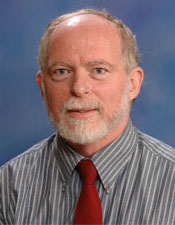
David Laband earned an M.S. and Ph.D. in Economics from Virginia Polytechnic Institute. He currently serves as Professor and Director of Graduate Programs for the economics department at Auburn University, where he has focused on building the Ph.D. program and is heading the department’s capital campaign. Previously, he chaired the economics department at Salisbury State University, Maryland.
An applied micro-economist, Professor Laband is well-known in the field of economics. His research, widely cited, includes substantial work in several of the school's strategic areas, particularly environmental economics, labor economics, and micro-economic analysis. He is a popular teacher who has been repeatedly recognized for teaching excellence.
The author of five books and editor of four collections, Dr. Laband has had published over one hundred and thirty articles in prestigious journals including the Quarterly Journal of Economics, Journal of Political Economy, Review of Economics and Statistics, Journal of Labor Economies, and the Journal of Human Resources.
“I am delighted to be joining the faculty of Georgia Tech and the Ivan Allen College of Liberal Arts,” Laband said. “I look forward to working across the university community to enhance the contributions of the School of Economics and help develop an internationally prominent program.”
Dina Khapaeva – Chair of the School of Modern Languages
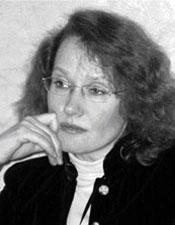
Professor Dina Khapaeva is an international scholar and administrator with a track record of institution and community building and significant leadership of fundraising and research programs. Currently a researcher at Helsinki Collegium at the University of Helsinki, Khapaeva was the inaugural Director for International Relations and Research at the Smolny College of Liberal Arts and Sciences, a joint program between St. Petersburg State University and Bard College that was Russia’s first “American-style” liberal arts college, and was the founding Director of Smolny Collegium, an institute for advanced studies.
Khapaeva received a Ph.D. in History from St. Petersburg State University, St. Petersburg, Russia. She specializes in Russian literature and culture. She brings to the School of Modern Languages strength in Russian - one of the critical languages identified by the U.S. Department of State. Dr. Khapaeva’s scholarly publications include four books and one translation from French; four chapters in collective volumes; more than 25 peer-reviewed articles with several in top tier peer-reviewed international journals published in Russian, English, and French.
She anticipates focusing on further development and expansion of the school’s nine modern language tracks and the internationalization and cultural adaptability of students.
Richard Utz - Chair of the School of Literature, Communication, and Culture
.jpg)
An experienced administrator, Dr. Utz recently completed a four-year term as Chair of the Department of English at Western Michigan University. During his career in Europe and the United States he has served in a wide variety of leadership positions in the areas of Graduate Study, Tenure and Promotion, Assessment, Scholarly Communication, and Strategic Planning.
Dr. Utz is an established interdisciplinary scholar of medieval culture and its reception in postmedieval times. His work spans literature, philology, philosophy and the history of humanistic inquiry and is distinguished by the type of intellectual cross-connections that will engage a key focus in LCC - the cultural construction of knowledge in science and technology.
Dr. Utz has published widely in English and German. He has authored two books, co)edited 17 essay collections, and published 27 journal articles, 21 book chapters, nine articles in conference proceedings, and 50 scholarly reviews. He also serves on editorial advisory boards for journals and book series in Australia, Denmark, Great Britain, Germany, and the United States.
Dr. Utz earned an M.A. and a Ph.D. from University of Regensburg, Germany. He has broad teaching experience in literature and the humanities at undergraduate and graduate levels, has been recognized at the college, university, and state level for excellence in scholarship and teaching, and currently serves as the President of the International Society for the Study of Medievalism.
“I see in my new position in LCC as a unique opportunity to bridge the allegedly sempiternal chasm between science and technology on the one hand and humanistic inquiry on the other,” said Dr. Utz. “My goal as a scholar, teacher, and administrator is to further innovate interdisciplinary collaboration among specialists from traditionally separate disciplines, which in my view, the only promising way to solve the complex social and cultural problems of the future. GT, IAC, and LCC’s strategic mission to support such creative collaborative work is what attracted me to join this distinguished institution.”
|
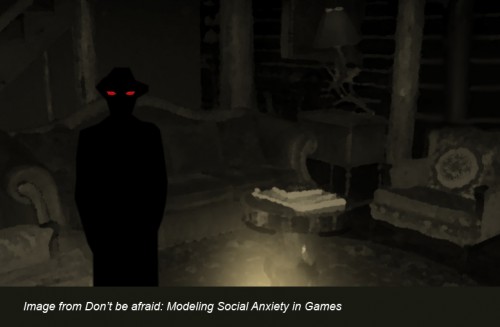
|
Disrupting Boundaries: The Graduate Program in Digital Media Re-envisions Its Future
Twenty years ago, the idea of a graduate program in digital media within a liberal arts college was quite novel. At the time, technical skills were taught in computing programs, design was taught in art schools, and neither intersected with liberal arts, much less graduate level liberal arts studies. And outside the science community, very few imagined the development of a new breed of media with the connectivity and impact of the Internet.
A new horizon was defined eighteen years ago when the Ivan Allen College and its School of Literature, Communication, and Culture established the Graduate Program in Digital Media (then called Information Design and Technology). It quickly became clear that its boundary-breaking research and curricula would serve as the model for programs around the globe.
“This program broke down the silos that separated technical and design disciplines, as well as platforms such as film, television, and online media,” said Jay Telotte, LCC Interim Chair. “We established Georgia Tech as a leading brand in the field of digital media and have attracted the best faculty and students in the world.”
Telotte’s remarks came during a symposium on April 16th rededicating the program’s James and Mary Wesley Center for New Media Education and Research on the occasion of its tenth anniversary. Established to promote the application and development of new media technologies in the areas of education, design, digital art, and culture, it encourages work in film, television, expression of art and literary forms - all of which are now in a cultural dialogue with new digital media.
“The Wesley Center marked a major shift in this school,” said Telotte. “Today, media is central to all we do and has fundamentally changed pedagogy throughout our curricula.”
In fact, the primacy of digital media has impelled a renaming of the school that will come about this Fall, but the focus of the day was on the future of the graduate program. Telotte paid homage to the program’s pioneers, faculty member Jay Bolter, former LCC chairs Bob Kolker and Ken Knoespel, former Digital Media program director Janet Murray, and the Wesley family.
Ian Bogost, who assumed leadership of the program in 2011, introduced a re-framed vision for the Digital Media graduate program that builds upon its strengths and continues to disrupt boundaries.
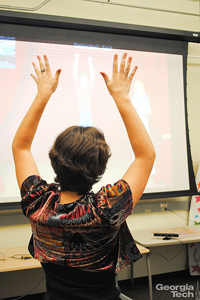 “In the short span of a decade, we’ve again re-defined the value of education in digital media,” said Bogost. “A measure of our success is that industry is acclimated and eager to hire graduates with the kinds of cross-disciplinary skills that originated and continue to be expanded in this program. I’m looking at re-inventing how we fit in the academic world; creating new ways of doing things in both academia and the media industry.” “In the short span of a decade, we’ve again re-defined the value of education in digital media,” said Bogost. “A measure of our success is that industry is acclimated and eager to hire graduates with the kinds of cross-disciplinary skills that originated and continue to be expanded in this program. I’m looking at re-inventing how we fit in the academic world; creating new ways of doing things in both academia and the media industry.”
Bogost outlined three key areas of focus for the program, which will guide its research, education, and public impact for the next five years: Arts & Entertainment, Civic Media, and Knowledge and Creativity.
In Arts & Entertainment, digital media faculty and students explore how technology in general, and the digital medium in particular, enhance, expand, and reconfigure this influential aspect of cultural expression. The program’s strengths in this area include a longstanding focus on new forms of narrative and storytelling, including interactive narrative and experimental television, new methods of digital performance and exhibition, and the design and application of computer games.
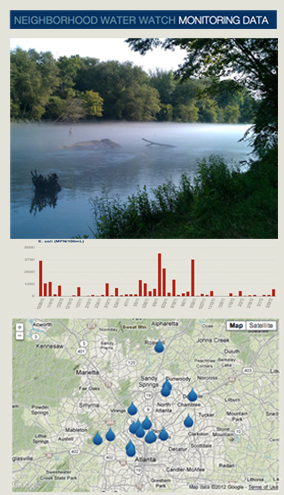 In Civic Media, faculty and students investigate how digital media fits into the fabric of culture and civic life. The program focuses on digital technology’s potential to change and improve the daily lives of ordinary people, rather than as marketing tool to advance the latest Silicon Valley gadget or service. Areas of focus include community activism, technological supports of at-risk populations, and investigations of the problems and needs of local, state, and even worldwide communities. In Civic Media, faculty and students investigate how digital media fits into the fabric of culture and civic life. The program focuses on digital technology’s potential to change and improve the daily lives of ordinary people, rather than as marketing tool to advance the latest Silicon Valley gadget or service. Areas of focus include community activism, technological supports of at-risk populations, and investigations of the problems and needs of local, state, and even worldwide communities.
And in Knowledge Generation and Creativity, faculty and students investigate and alter the role of the digital medium in education, the production of knowledge, and the creative process. The use of digital forms like games, visualizations, and devices for education can be found here, as well as theoretical explorations of the digital design process, and new methods of inspiring and facilitating creativity with digital technologies, both for new audiences and for more diverse communities of creators.
The Digital Media program faculty and students signal their intent to continue disrupting the playbooks for interactions between academia and industry, between theory and practice, and our evolving definitions of media.
“Our media shape the way we live,” said Bogost. “In the digital media program, we ask how we want to live first, rather than assuming that whatever current technology gives us will be best.”
The occasion of a look back on its last decade encapsulates the program’s core mission: to invent the future of digital media based on a firm understanding of its past—a feature that reinforces the program’s strong commitment to the liberal arts.
|
ADVANCE Professors Spearhead New Equity Program for Faculty
A new plan developed by the distinguished ADVANCE women professors in each of Georgia Tech's six colleges will introduce a campus-wide equity program for faculty advancement. The new Equity Program, combined with on-going strategies, is intended to sustain and enhance the Institute as a diverse, world-leading technological community.
Mary Frank Fox, ADVANCE professor in the Ivan Allen College of Liberal Arts and an original Co-PI of the National Science Foundation ADVANCE award ($3.7 million, 2001-07), chaired the ADVANCE Professors Program in fall 2011. She took a lead in authoring the 2012-14 ADVANCE Plan that proposed the Equity Program.
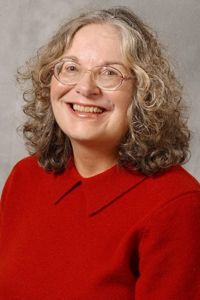 “Equity, along with diverse excellence and advancement among faculty, are three core elements of the Georgia Tech ADVANCE Program,” Fox said. “These cornerstones are connected. Equity in hiring and evaluation is the lever of the recruitment and advancement of a diverse and accomplished faculty, and are crucial to constituting a world-class institution.” “Equity, along with diverse excellence and advancement among faculty, are three core elements of the Georgia Tech ADVANCE Program,” Fox said. “These cornerstones are connected. Equity in hiring and evaluation is the lever of the recruitment and advancement of a diverse and accomplished faculty, and are crucial to constituting a world-class institution.”
A leading researcher in gender, science and academia, Fox says that the new Equity Plan enlarges Georgia Tech’s long-standing, distinctive commitment to institutional transformation in the area of faculty advancement.
“No other academic institution has approached institutional transformation as centrally,” said Fox. “The GT initiative was one of the very few, if not the only, ADVANCE initiative nationally that has addressed clarity and equity in evaluation. This is not a prescriptive formula for evaluation--but rather fair and transparent processes. This is an ongoing process that requires continuous attention and that is the impetus for this plan.”
More than two decades of efforts have brought a slow increase in women faculty at Georgia Tech, but the number of women in the ranks of distinguished professors remains remarkably low: In the College of Computing, for example, two of fourteen active distinguished, regents, or chaired professors are women. In the College of Engineering (COE), only eight (6.5%) are held by women, while women are 15% of the faculty in COE. The College of Sciences has one woman distinguished professor at the level of full professor.
The 2012-2014 ADVANCE Plan continues a range of strategies including enhancement of the inter-college network of distinguished ADVANCE professors who are world-class researchers and models for Georgia Tech, and the plan addresses issues particular to Colleges and to Institute-wide concerns of productivity and livability.The equity program is being designed as a core underpinning for hiring and evaluation practices.
Georgia Tech Provost Rafael Bras said, “GT has always been committed to excellence and equity in its hiring and promotion practices. But excellence and equity requires constant vigilance and adherence to best practices and clear processes. The work of the ADVANCE professors will help us in our “relentless pursuit of institutional effectiveness.”
Already underway is a systematic study of equity models at other academic institutions that will inform design of the Georgia Tech program. Spearheaded by the ADVANCE professors, partners in this initiative are the deans in each of the colleges, Provost Rafael Bras, and Vice President for Institute Diversity, Archie Ervin. Ultimately, stakeholders from across the institute will be engaged in the process.
A Global Horizon
With the Equity Program underway, Fox and her colleagues are already anticipating the future. Georgia Tech’s growing international profile provides opportunity to expand horizons for women in science, technology, engineering, and math (STEM) fields around the world by serving as a model of recommended practices.
Vice President for Institute Diversity Archie Ervin said, “The ADVANCE program and the new Equity Program, are a new and integral step toward the institutionalization of fair processes, advancement, and diversity of faculty. This is a critical part of Georgia Tech’s national leadership and stature and competitiveness as a premier 21st century world leader in the advancement of faculty.”
Indeed, as GT prepares to mark 60 years of women students at Georgia Tech, the cadre of distinguished ADVANCE professors will work toward goals for a productive environment that supports not only women but the larger community of all faculty.
The ADVANCE professors are: Mary Frank Fox (IAC), Mary Ann Ingram (COE), Wing Suet Li (COS), Dana Randall, (COC), Catherine Ross (COA), and Christina Shalley (COM).
Read more about ADVANCE and GT’s ADVANCE professors.
|

|
Smaller is Better: Emilson Silva Applies Game Theory to Pollution Control
Emilson Silva devotes a great deal of thought to games -- not leisure activities such as soccer or Parcheesi, but the complex give-and-take of public policy and economics.
A professor of economics and director of the Ph.D. program in the Ivan Allen College's School of Economics, Silva analyzes the rationale behind the behavior of governments in determining policies that have transboundary effects, that is, policies that affect not only the citizens of a particular jurisdiction, but also the citizens of another jurisdiction.
Silva's research is conducted through the rubric of game theory, which employs mathematical models to describe the ways groups of people interact. The best-known example is the zero-sum game, where one person or group's gain is contingent on another's loss.
Game theory gained traction among economists in the late 1940s, and variations of it have been applied to studies in political science, psychology, and biology.
For Silva's research purposes, game theory provides a framework for studying the strategic considerations that lead entities, primarily governments, to adopt particular sets of policies and regulations. Understanding the rationale behind these decisions within the context of game theory could help policy makers coordinate their actions to convey maximum benefits to the greatest number of people, while minimizing or even eliminating the loss to other participants.
Environmental issues are of special interest to Silva because the tradeoffs involved in this particular policy-development ‘game’ do not produce clearly defined winners and losers.
 "The effects of air and water pollution do not respect political boundaries," he said, "so the actions -- or inaction -- of one jurisdiction regarding pollution abatement typically impacts surrounding jurisdictions." "The effects of air and water pollution do not respect political boundaries," he said, "so the actions -- or inaction -- of one jurisdiction regarding pollution abatement typically impacts surrounding jurisdictions."
A recent research project examined the objectives of the Kyoto Protocol, designed in 1997 and intended to foster international cooperation toward reducing a number of climate-changing greenhouse gas emissions with specific benchmarks. Despite general agreement on the need to reduce atmospheric levels of carbon and other harmful emissions, the U.S. is conspicuously absent from the list of 190-plus signatories to the complex agreement, which began taking effect in 2005. The reasons behind the U.S. Senate's refusal to ratify the treaty include a claim that meeting the treaty's emissions standards would confer a competitive disadvantage to the U.S. relative to emerging economies elsewhere in the world. In game theory terms, the gains achieved by Kyoto in terms of air quality would be more than offset by the dollar cost of compliance by U.S. industry.
Silva set out to find an alternative to Kyoto that would mitigate American objections while staving off the global-warming threat thought to be caused by certain industrial pollutants. First, he formulated an ‘ideal’ model agreement, meaning a treaty that would maximize the welfare of all nations participating in this protocol. The model was tested with real-world scenarios and numbers, and employed emissions trading and other mechanisms that were defined in Kyoto to help countries lower the costs of meeting their emissions targets.
Silva concluded that under certain ideal conditions, "the Kyoto Protocol is actually a very efficient protocol that maximizes global welfare in terms of reducing greenhouse gases and industrial emissions."
But the more pressing issue, at least for the U.S., was how to reduce harmful emissions without sacrificing competitiveness, since any cooperative agreement by its very nature is anti-competitive at some level.
"Realistically speaking it's very hard to coordinate a global environmental agreement," noted Silva. Instead, he proposed a series of bilateral or regional pacts. "It might be much easier to enact smaller agreements involving fewer countries," he explained. "These countries would be parties to more than one agreement, so there could be some overlap on critical issues. In this way, all countries would be connected at least indirectly to a shared set of objectives. In principle, you could achieve the same outcome as you would with a large global agreement."
Silva illustrates his approach with the example of the 1991 treaty between the U.S. and Canada to limit the sulfur emissions that produce acid rain. Canada and several European countries, including France, signed a similar agreement among themselves six years earlier. More recently, Canada has been pursuing a carbon emission-limiting treaty with France. If such an accord can be implemented, "the U.S. is then indirectly connected to France via Canada," he said. While the original agreements were negotiated to maximize the benefits to each of the participants in a specific realm, each now derives a benefit from the others' pollution-control efforts and has an economic stake in their prosperity. Countries would continue to act in their own self-interest, but with those interests more narrowly defined, there is a greater likelihood that areas of cooperation or common benefit will be found. In other words, the scenario Silva sketched out could improve the odds of U.S. participation in some kind of cap-and-trade system. Overlapping agreements provide a diplomatic foot in the door for policy coordination on other issues as well.
The global perspective that Silva brings to his economics classes is an important component of a Georgia Tech education. "There is a trend toward globalization in many fields, and my research tends to fit squarely within global issues," he said. "I think in terms of ways we can improve the well-being of individuals not only in the West, but across the globe. So I'm looking for innovative ways in which multinational companies and governments can develop policies that improve the welfare of the whole world."
Silva's research not only features a wide geographic range, it reaches across disciplines as well. He works with colleagues in the School of Earth and Atmospheric Sciences on the nuts-and-bolts of emerging pollution-abatement technologies such as carbon capture. He also consults with public policy experts in the School of Public Policy.
"Their input is valuable because they tend to be pragmatic and focus on specific issues," he said, "so I learn from them as well."
|
Public Policy’s Aaron Levine Receives NSF CAREER Award
|
|
Aaron Levine, assistant professor in the School of Public Policy, has received the National Science Foundation’s prestigious Faculty Early Career Development (CAREER) Award, a particularly notable achievement for faculty working in the social sciences. The five-year, $650,000 grant will support Levine’s project "Ethically Contentious Science and The Graduate School Experience." His work will focus on developing an understanding of how studying an ethically contentious field in graduate school affects students' learning, their development as scientists, and their transition to the scientific workforce. Levine’s key research activities supported by the NSF CAREER Award include a series of qualitative interviews with early career scientists in ethically contentious fields and a panel survey of graduate students in both ethically contentious and less contentious fields. His key educational activities include the development of a new course and a seminar series / journal club on science, technology and education policy. Read about Levine’s research on the intersection of public policy and ethically contentious issues in biotechnology
Levine Bio
NSF CAREER Program |
Farooq Fellowship Coincides With Sesquicentennial of Emancipation Proclamation
|
|
Nihad Farooq, assistant professor in the School of Literature, Communication, and Culture, has received the prestigious William S. Vaughn Visiting Research Fellowship from the Robert Penn Warren Center for the Humanities at Vanderbilt University. Farooq will join a group of Vanderbilt interdisciplinary scholars participating in the Andrew W. Mellon Foundation Sawyer Seminar. The 2012-2013 seminar coincides with the sesquicentennial of the U.S. Emancipation Proclamation (1863) and explores the theme, "The Age of Emancipation: Black Freedom in the Atlantic World." Farooq will be working on her book project, tentatively entitled "Virtual Emancipation: Slavery and Social Networks in the New World." Her research ties contemporary understandings of networks and network theory to historical acts of political resistance and community formation, especially in the era of Atlantic slavery. The project asks readers to examine the links between slave networks and slave resistance movements of the eighteenth and nineteenth centuries and contemporary acts of networked resistance, such as democratization movements in Tunisia and Cairo (aka, the 'Twitter Revolution'). |
Liu Receives GT-CETL/BP Teaching Excellence Award
|
|
Jin Liu, assistant professor in the School of Modern Languages has been awarded the GT-CETL/BP in America Junior Faculty Teaching Excellence. Liu was one of five Georgia Tech faculty to receive the award for 2012. Selected by the Institute’s Center for Enhancement of Teaching and Learning (CETL), the award recognizes teaching excellence, educational innovation, impact on student lives, and research-teaching connections. Lui teaches classes in Chinese language and contemporary Chinese culture. She alternately co-directs the School of Modern Languages' intensive summer Chinese language program in Shanghai, and the Languages for Business and Technology Chinese program, leading students in immersive study and work in China. Liu is a past winner of the Institute's Class of 1934 Course Survey Teaching Effectiveness Award (2010-2011), a student voted award. |
Dan Breznitz Testifies Before Senate U.S. - China Economic and Security Review Commission
|
|
The U.S. is using an old playbook in the global economy and must refocus if it is to compete with China. That was the message Dan Breznitz delivered to members of the Senate U.S.-China Economic and Security Review Commission on May 10. “A pervasive misconception among policy makers and academics has made excelling in innovation – defined solely as the creation of new technologies, services, and products – the holy grail of economic growth,” said Breznitz during prepared testimony. “Accordingly, too often conversations about innovation focus on novel breakthrough developments that give rise to "game-changing" technology.” An associate professor in the Ivan Allen College of Liberal Arts Sam Nunn School of International Affairs and the College of Management, Breznitz is an expert in globalization and rapid innovation-based industries. Breznitz’ remarks reframed the focus of the hearing which was entitled “China's efforts to become an innovation society." “We somehow assume we’re still in a world where, if you innovate, all the rest will happen within your borders and this is just not true anymore,” said Breznitz. “The globalization of design, production, sophisticated manufacturing, and distribution requires a new approach to a second form of innovation – in second generation, processes and production, as well as incremental product innovation – in order to avoid the risk of losing jobs and industrial capabilities essential to the competitiveness of the United States economy.” Breznitz outlined four central points that the commission should consider about China’s innovation capabilities and the real challenge they present for the United States: 1) Globalization has changed the manner in which innovation is carried out around the world, 2) The rise of global fragmented production of both goods and services has led, for the first time in history, to true economic international interdependency with economic and political implications, 3) China’s true innovational competitive edge, and the real competitive challenge to the U.S., is mastering the art of second generation innovation...and the science of organizational, incremental, and process innovation, 4) The United States should focus less on China’s attempt to outdo Silicon Valley and more on China’s capabilities in the commercialization, improvement and application of technologies first developed in the United States. This is our real long-term challenge and the key one if we wish capture more of the value, including job creation effects, of our own novel innovation. Read Full Remarks
Watch the Full Commission Hearing Video (Breznitz begins at approx. 42 minutes ) |
Marilyn Brown Named An Inaugural Ambassador for DOE/MIT Women in Clean Energy Program
|
|
Climate and energy policy professor Marilyn Brown has been named an inaugural ambassador in U.S. Department of Energy / MIT Women in Clean Energy Program for the United States. Announced in April, the Women in Clean Energy Program is part of the U.S. Clean Energy Education and Empowerment initiative (C3E) and is aimed at attracting more women to clean energy careers and supporting their advancement into leadership positions. As an ambassador, Brown is one of a cohort of distinguished senior professionals who share an interest in broadening the recruitment, retention and advancement of highly qualified women in the field of clean energy and are committed to acting as champions for the goals of C3E. She and her fellow ambassadors will also serve as the selection panel for the Women in Clean Energy awards program. Also among the inaugural group of ambassadors are: Maxine Savitz, vice president of the National Academy of Engineering and member of the President’s Council of Advisors on Science and Technology; Kim Saylors-Laster, vice president for energy, Walmart; Kateri Callahan, president of the Alliance to Save Energy; Dorothy Robyn, deputy undersecretary of Defense for Installations & Environment; and Nancy Pfund, founder and managing partner of DBL Investors. |
SPP Faculty Research Underpins President's Council Assessment of National Nanotechnology Initiative
|
|
On April 27, the President’s Council of Advisors on Science and Technology (PCAST) released the “Report to the President and Congress on the Fourth Assessment of the National Nanotechnology Initiative (NNI),” a congressionally mandated biennial review. Five of the 24 researchers providing input to the report were from the Ivan Allen College of Liberal Arts School of Public Policy (SPP). The PCAST recommendations will be influential in the approval of $1.8 billion in federal funding proposed for fiscal year (FY) 2013 for 15 agencies with budgets dedicated to nanotechnology research and development. The work of Drs. Alan Porter, Juan Rogers, and Phil Shapira, along with EI2 researcher Jan Youtie, are cited a number of times. Work by SPP PhD students Sanjay Arora and Luciano Kay are also cited. The report notes that, as initial federal investments in nanotechnology mature, outputs and impacts from research activities are being given more attention. SPP researchers provided data and studies defining and assessing key indicators of research productivity, including publication and patenting rates, as well as patterns of collaboration (see report data beginning on page 5 and list in Appendix A). PCAST found that the NNI, which to date has provided $16 billion in investments by 26 federal agencies, “has had a ‘catalytic and substantial impact’ on the growth of the U.S. nanotechnology industry and should be continued.” PCAST states that, in large part due to the NNI, the U.S. “is today, by a wide range of measures, the global leader in this exciting and economically promising field of research and technological development.” Read the Full Report |
Thomas Advocates in Washington for Federal Support for Research
|
|
|
|
Valerie Thomas visited with U.S. congressional members from Georgia April 24-25, advocating for federal funding for Science, Technology, Engineering, and Mathematics (STEM) research and energy research. Thomas, who is associate professor in the School of Public Policy and is the Anderson Interface Associate Professor of Natural Systems Stewart School of Industrial and Systems Engineering, attended the 2012 Congressional Visits Day, along with Georgia Tech's director of federal relations, Robert Knotts. Thomas met with Representative John Lewis and with staff for Representative Hank Johnson and Senator Saxby Chambliss. Thomas emphasized the value of research being done at Georgia Tech, as well as, the importance of federal research funding from agencies such as the National Science Foundation, the Department of Defense, and the Department of Energy that supports the development of solutions for challenges in energy and creating a more sustainable way of life. She also highlighted her own research on energy options in the southeast. “Federal support of research is important, both for fundamental research that can provide the basis for future advances, and for progress on national priorities including defense and energy,” said Thomas. She noted the importance of such congressional visits if we are to provide long-term understanding and relationship-building between researchers and policy-makers. |
Nunn School Undergraduate Presents Research on WMD Terrorism at West Point
|
|
Third year International Affairs and Modern Languages major, Lucia Bird, presented research results that challenge accepted wisdom on WMD terrorism in the Middle East at the United States Military Academy (USMA) Combating Terrorism Center (CTC). Bird was selected to present at West Point’s second annual Cadet/Student Conference on Terrorism, Insurgency, and Asymmetric Conflicts held on March 27th. The conference is a high level forum for undergraduate and graduate students to present research focusing on the characteristics, causes, and implications of terrorism and insurgency and to discuss the larger issues associated with asymmetric conflicts. Those in the reviewing panel included West Point faculty and experts in the field. Advised by Margaret E. Kosal, assistant professor in The Sam Nunn School for International Affairs, Bird explored acquisition and use of weapons of mass destruction (WMD) by non-state actors in the Middle East. The work challenges traditional thoughts on the relationship between WMD terrorism and state support, and improved understanding of terrorist organizations’ WMD motivations and capabilities. Bird empirically chronicled the acquisition, attempts, and use of WMD by Hamas and Hezbollah from available literature and media sources. Bird and Kosal further studied existing evidence on the suspected relationships between these two organizations and potential state supporters (Iran and Syria). Comparing the different success rates of the two organizations and taking into account the different levels of state support, the research probes the extent to which state support of terrorist groups seriously impacts WMD acquisition, development, and use. Conventional theories suggest that non-state actors do benefit from state assistance in the pursuit of chemical, biological, radiological, or nuclear agents. Bird and Kosal, however, found that an unanticipated trend appears: Hamas, which lacks significant state support, seems freer to pursue WMD activity; while there are limited attempts to attain or employ WMD by Hezbollah, which may be restricted because of its relationship with Iran and Syria. The broader impact of the research relates to the strategy and policies of the U.S. to deter pursuit of and prevent acquisition or use of WMD by non-state actors. |
HTS Graduate Drafted by Indiana Fever
|
|
Sasha Goodlett, a recent graduate from the IAC School of History, Technology, and Society who played senior center for Georgia Tech women’s basketball, was selected 11th overall by the Indiana Fever in the first round of the 2012 WNBA Draft held April 16th. "I am just really excited," said Goodlett. "I am really looking forward to going in there and learning from veteran players like Tamika Catchings and actually coming into the system and learning and being part of the culture." Goodlett finished her career at Georgia Tech ranked in the top in points scored (10th, 1,364), rebounds (9th, 760) and blocked shots (5th, 127). This year, Goodlett earned All-ACC Second Team and ACC All-Tournament First Team accolades as she helped the Jackets to 12 ACC wins and 26 overall wins, both program bests. The Yellow Jackets played in the ACC Championship Game for only the second time in school history and advanced to Tech's first Sweet 16. Congratulations, Sasha. You’re creating your own great sports history! Read more |
IAC Faculty and Students Are Blogging
Faculty in Ivan Allen College of Liberal Arts are frequent commenters on the GT blog.
IAC students share their research and experience in Europe, China, and U.S. west coast.
|

|
IAC 2011/2012 Faculty, Student, and Staff Honors!
Ivan Allen College of Liberal Arts faculty, staff, students, and alumni have been recognized for extraordinary work and achievements this year. Congratulations to all!
Faculty Distinguished Appointments
Jennifer Clark
Associate Professor, School of Public Policy
International Society for Optics and Photonics Engineering, Science & Technology Policy Committee
Michael Elliott
Associate Professor, School of Public Policy
National Research Council Committee on Inherently Safer Chemical Processes
Hans Klein
Associate Professor, School of Public Policy
Appointed by Ray LaHood, U.S. Secretary of Transportation to the U.S. Department of Transportation Intelligent Transportation Program Systems Committee
Aaron Levine
Assistant Professor, School of Public Policy
National Academies Institute of Medicine Committee
BJ Davis Rowe
Visiting Professor, School of Public Policy
Children's Healthcare of Atlanta Legislative Committee
Phil Shapira
Professor, School of Public Policy
National Academies Committee on 21st Century Manufacturing: The Role of the Manufacturing Extension Partnership (MEP) Program of the National Institute of Standards and Technology
Faculty Institute Appointments
Paul M.A. Baker
Adjunct Professor, School of Public Policy
Named Associate Director of Georgia Tech Center for 21st Century Universities (C21U)
Susan Cozzens
Associate Dean for Research and Faculty Development
Named Vice Provost of Graduate Education and Faculty Affairs
Faculty National Awards
Ron Bayor
Professor, School of History, Technology, and Society
American Library Association Booklist Editors' Choice Award for Multicultural America: An Encyclopedia of the Newest Americans
Vicki Birchfield
Associate Professor, Sam Nunn School of International Affairs
President of the French Republic's 'Chevalier de l'Ordre Nationale du Merite' (Knight in the French National Order of Merit)
John Krige
Kranzberg Professor, School of History, Science, and Technology
Winner Doreen and Jim McElvany 2011 Nonproliferation Challenge, James Martin Center for Nonproliferation Studies
Aaron Levine
Assistant Professor, School of Public Policy
National Science Foundation Faculty Early Career Development (CAREER) Award
Bill Winders
Associate Professor, School of History, Science, and Technology
American Sociological Association, Political Economy of the World-System Section Book Award
Bill Winders
Associate Professor, School of History, Science, and Technology
Journal of Agrarian Change Berenstein & Byres Prize for Best Article in 2009
Faculty Institute Awards
Georgia Tech Research Corporation (GTRC) People and Technology Award
Michael Best
Associate Professor, Sam Nunn School of International Affairs
GTRC Public Service, Leaderships, and Policy Award
Dan Breznitz
Associate Professor, Sam Nunn School of International Affairs
GTRC Innovation in Literature and Communication Award
Thomas Lux
Professor, School of Literature, Communication, and Culture
GTRC Big Data Award
Alan Porter
Professor Emeritus, School of Public Policy
Faculty Fellowships
Shiri Breznitz
Assistant Professor, School of Public Policy
Visiting Professor Fellowship at Collegio Carlo Alberto and the University of Turino, Italy
Nihad Farooq
Assistant Professor, School of Literature, Communication, and Culture
William S. Vaughn Fellowship at Robert Penn Warren Center for the Humanities at Vanderbilt University
Douglas Flamming
Professor, School of History, Technology, and Society
John Simon Guggenheim Memorial Foundation Fellowship
Andy Frazee
Brittain Postdoctoral Fellow, School of Literature, Communication, and Culture
John Simon Guggenheim Memorial Foundation Fellowship
Janelle Knox-Hayes
Assistant Professor, School of Public Policy
Social Science Research Council Abe Fellowship
Narin Hassan
Assistant Professor, School of Literature, Communication, and Culture
Hesburgh Award Teaching Fellow
Faculty Leadership Development
Tebor Besedes, Assistant Professor, School of Economics, attended the Georgia Tech College of Management Leadership Roundtable
Usha Nair-Reichert, Associate Professor, School of Economics, was a scholar in the 2011-2012 USG Executive Leadership Institute
Mark "Zak" Taylor, Assistant Professor, The Sam Nunn School of International Affairs, attended the Georgia Tech Leadership Roundtable, and the Georgia Tech College of Management Leadership Roundtable
Faculty Teaching Awards
GT-CETL Geoffrey Eichholz Teaching Award
Douglas Flamming
Professor, School of History, Science, and Technology
GT-CETL/BP in America Junior Faculty Teaching Excellence Award
Jin Liu
Assistant Professor, School of Modern Languages
Georgia Tech Course Instructor Opinion Survey (CIOS) Teaching Excellence Awards announced by the Center for Enhancement of Teaching and Learning (CETL)
Kelly Comfort, Assistant Professor (Modern Languages)
Douglas Flamming, Professor (HTS)
Lionel Gall, Instructor (Modern Languages)
Stuart Goldberg, Associate Professor (Modern Languages)
Karen Head, Assistant Professor (LCC)
Christophe Ippolito, Assistant Professor (Modern Languages)
John Krige, Kranzberg Professor and Director of Graduate Studies (HTS)
Jin Liu, Assistant Professor (Modern Languages)
Melissa Pilkington, Instructor (Modern Languages)
Nirmal Trivedi, Brittain Postdoctoral Fellow (LCC)
Ruth Uwaifo, Assistant Professor (ECON)
Ivan Allen College Founder’s Day Awards
Ivan Allen Jr. Prize for Social Courage
William H. Foege
Transformational leader in global health policies who made possible the eradication of smallpox and other diseases worldwide
Ivan Allen Jr. Legacy Faculty Award
Margaret Kosal
Assistant Professor, Sam Nunn School of International Affairs
Ivan Allen Jr. Legacy Alumni Award
Alexander Blair West
School of Literature, Communication, and Culture, Computational Media, 2006
Ivan Allen Jr. Legacy Graduate Student Award
Nettrice Gaskins
School of Literature, Communication, and Culture
Ivan Allen Jr. Legacy Undergraduate Student Award
Kate Owens Wharton
School of Economics and Sam Nunn School of International Affairs
Ivan Allen College of Liberal Arts Dean's Recognition
Marilyn Brown
Professor, School of Public Policy
Dean's Recognition Professorship
Janet Murray
Professor, School of Literature, Communication, and Culture
Dean's Recognition Professorship
Dean's Gold Star Faculty Sponsored Research Awards (April 1, 2011 - March 31, 2012)
 $100,000+ $100,000+
Michael Best (INTA)
Haizheng Li (ECON)
Patrick McCarthy (ECON)
Helena Mitchell (PubPol)
Alan Porter (PubPol)
Adam Stulberg (INTA)
$100,000+ for Second Year Consecutive Year
Paul Baker (PubPol)
Marilyn Brown (PubPol)
Michael Hoffman (PubPol)
Brian Magerko (LCC)
Celia Pearce (LCC)
Phil Shapira (PubPol)
Million Dollar Club ($1M or More Cumulative Since 2005)
Danny Boston (ECON)
Danny Breznitz (INTA)
Marilyn Brown (PubPol)
Susan Cozzens (PubPol)
Sy Goodman (INTA)
Brian Magerko (LCC)
Phil McKnight (ModLangs)
Julia Melkers (PubPol)
Helena Mitchell (PubPol)
Alan Porter (PubPol)
Phil Shapira (PubPol)
Adam Stulberg (INTA)
Development Grants
More than $48,000
Mike Best (INTA)
Bettina Cothran (ModLangs)
Jong Lee (ModLangs)
Phil McKnight (ModLangs)
Mike Salomone (INTA)
John Walsh (PubPol)
Dean’s Staff "Buzz" Recognition Awards
Administration
Candise Favors, Administrative Professional (ModLangs)
Jocelyn Thomas, Administrative Professional (LCC)
Yolanda Turner, Administrative Manager (PubPol)
Johnnie Sawyer, Graduate Advisor (PubPol)
Student Services
Carolyn Crump, Administrative Professional (AFROTC)
Katie Raczynski, Academic Advisor (LCC)
Faculty and Staff Service Awards
10 Years at Georgia Tech
Robert J. Kirkman (PubPol)
Cheryl Leggon (PubPol)
Thomas N. Lux (LCC)
Douglas S. Noonan (PubPol)
25 Years at Georgia Tech
Philip Auslander (LCC)
Richard P. Barke (PubPol)
Willie J. Belton (Econ)
Institute Staff Recognition
J.C. Reilly (STAC)
Academic Professional, LCC Science, Technology, and Culture (STaC) Major
Outstanding Undergraduate Academic Advising: Faculty Advisor
Graduate Student Awards and Scholarships
Sanjay Arora (PubPol) - Georgia Tech Research and Innovation Conference (GTRIC) Poster Session Award
Diane Alleva Cáceres (INTA) - Canadian Studies Doctoral Student Research Award (Dissertation Grant) from International Council for Canadian Studies
Chris DeLeon (LCC) - Forbes' 30 Under 30 List
Deji Fajebe (INTA) - George Washington University CIBER Summer Doctoral Institute
Yujia He (INTA) - George Washington University CIBER Summer Doctoral Institute
Eugene Medynskiy (LCC) - Forbes' 30 Under 30 List
Rebecca Rolfe (LCC) - Online News Association AP-Google Journalism and Technology Scholarship
Undergraduate Student Awards and Scholarships
Shayla Bivins (LCC) - Georgia Tech Athletic Association (GTAA) Academic Excellence and Spotlight Awards
Yumy Lee Chung (LCC) - Office of Minority Educational Development (OMED) Tower Award
Stuart Collier (LCC) - National Merit Scholarship
Jenna Hanington (LCC) - Zell Miller Scholarship
Tyler 'TJ' Kaplan (PubPol) - Eben Tisdale Public Policy Fellowship
Joe Murphy - (LCC) - 1st Prize in Georgia Tech Research Institute (GTRI) 2012 Poster Contest
Chelsea Regins (LCC) - Charles K. Sewell Athletic Scholarship
Robert Rule (HTS) - Ivan Allen College of Liberal Arts Top Undergraduate Researcher
Graham Sweeney (INTA) - Ivan Allen College of Liberal Arts "I Am Liberal Arts" Award
Vett Vandiver (LCC) - Office of Minority Educational Development (OMED) Tower Award
Ivan Allen College of Liberal Arts Dean's Scholarships
Lauren Llarendi (EIA)
Thomas Marion (EIA)
Erin Sapp (LCC)
Chloe Stargel (INTA/ML)
IAC School Awards and Scholarships
School of Economics
Matthew LaGrone - Outstanding Economics Student Award
Julianne Marie Camacho - Omicron Delta Epsilon Outstanding Senior Cup
Kate Wharton - Mollie Newton Award for Excellence in Economics
School of History, Technology, and Society
Ben Beldon - Bellon Prize
Lauren Burtz - History, Technology, and Society Chair's Award
Julian Brew - Dorothy Cowser Yancy Incentive Award
John Miller - IAC School of History, Technology, and Society Homer Rice Award
Robert Rule - Slotkin Award
The Sam Nunn School of International Affairs
Kelly Sachs - Outstanding Graduate Student
Kate Wharton - 1996 Olympic Envoy Program Legacy Award
Julianne Camacho - The Michael Williams Minority Student Award
School of Literature, Communication, and Culture
Michelle Bjournas - James Dean Young Award
Chris DeLeon - Outstanding Masters Thesis
Lauren Langley - Oustanding Masters Project
Alex Lind - William Gilmer Perry Award
School of Modern Languages
Benjamin Dreher Bennett (IAML) - Outstanding Senior: French
Marek Fikejz (ALIS) - Excellence in Applied Languages and Intercultural Studies Award and the award for Outstanding Senior: German
Kelsey Hinely (IAML) - Outstanding Senior: Japanese
Lee Taylor Buckley (IAML) - Outstanding Senior: Spanish
Anita Hasni (PSYC) - Outstanding Senior: Arabic
Seol Lee (CHEBE) - Outstanding Senior: Korean
Cari Cistola (INTA) - Outstanding Senior: Russian
School of Public Policy
Austen Edwards - Outstanding Undergraduate Student
Jasmine McGinnis - William H. Read Award
Joint Degree Awards
Benjamin Dreher Bennett (IAML) - Excellence in International Affairs and Modern Languages Award
Gabrielle Eichenblatt (GEML) - Excellence in Global Economics and Modern Languages Award
John Azeez Shaheen (GEML) - Excellence in Global Economics and Modern Languages Award
Aleksandra Dabrowska (EIA) - Outstanding Economics and International Affairs Student Award
President's Undergraduate Research Awards (PURA)
Fall 2012
Benjamin Bennett – " French-African Identity in the Works of Marie Ndiaye" Mentor: Dr. Nora Cottille-Foley (ModLangs)
Jehoon Choi – "Government-Directed Economic Transformation: South Korea’s Green Growth Strategy" Mentor: Dr. Brian Woodall (INTA)
Daniel Flannery – "Electrical Power Mapping Across Nigeria" - Mentor: Dr. Michael Best (INTA)
Patricia Murphy – Emerging Biotechnology and Biosecurity Policy: Development of Threat Framework for Scientific Analysis of Potential Biological Weapons" - Mentor: Dr. Margaret Kosal (INTA)
Yin Kuin Lim – "Testing of High School Math and Science in the United States" - Mentor: Dr. Willie Pearson, Jr. (HTS)
John O'Brien – "Carbon Emissions Transparency and Firm Behavior as a Response to the Carbon Disclosure Project" - Mentor: Dr. Daniel Matisoff (PubPol)
Ian Yamamoto – "The Advancement of Economic Freedom via Promotion of Open Source Software" - Mentor: Dr. Doug Noonan (PubPol)
Spring 2012
Adam Le Doux – "Building a Fantasy Ecosystem to Promote Awareness of Real Ecosystems" - Mentor: Dr. Celia Pearce (LCC)
Anna Mazzolini – Characterizing Trends in Green Building Certification" - Mentor: Dr. Dan Matisoff (PubPol)
Sean Williams – "Measuring the Effectiveness of South Korea's Green Growth Strategy" - Mentor: Dr. Brian Woodall (INTA)
Summer 2012
Elise Livingston - "EarSketch" - Mentor: Dr. Brian Magerko (LCC)
Paige Clayton - "One city, three universities, multiple models of technology commercialization" - Mentor: Dr. Shiri Breznitz (PubPol)
|
The IAC Newsletter is on hiatus until August. Have a great summer!
|
|

